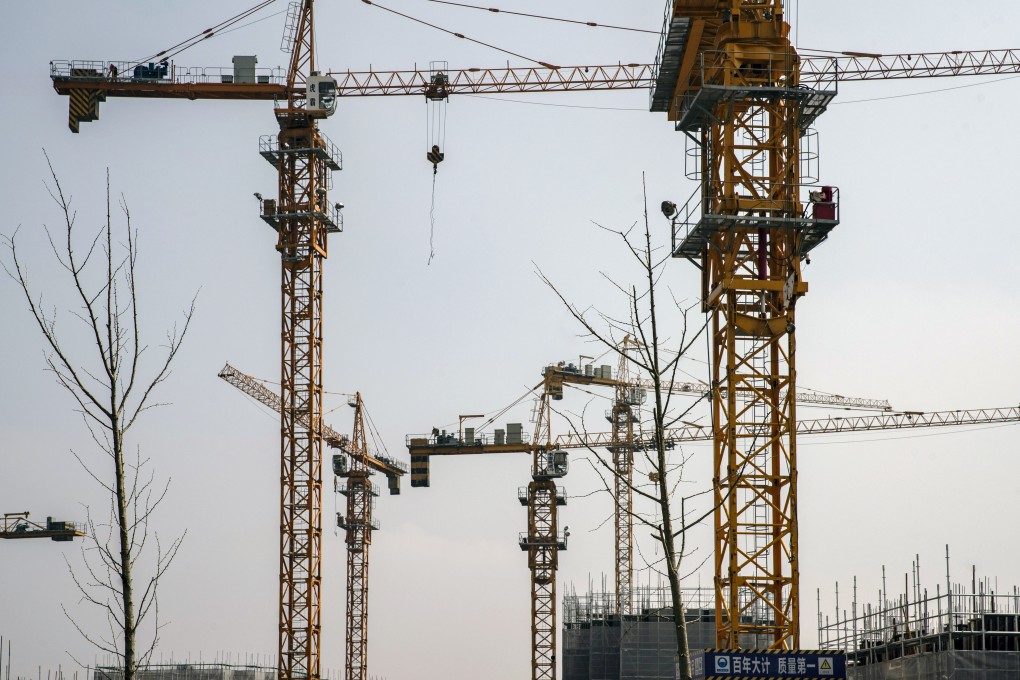Advertisement
China GDP: economic growth tipped to slow amid coronavirus, property crackdown and debt reduction campaign
- Regulatory tightening in the property sector, deleveraging efforts and recurrent Covid-19 outbreaks are among the factors dragging on growth
- Analysts in a Bloomberg survey are predicting a 3.6 per cent expansion in the fourth quarter, down from 4.9 per cent in the previous quarter
Reading Time:3 minutes
Why you can trust SCMP
2

China’s economic growth is likely to slow further in the last quarter of 2021 amid fallout from the Evergrande crisis and a resurgence of Covid-19 outbreaks, according to analysts.
The world’s second largest economy is expected to report its gross domestic product (GDP) figures for last year on Monday, with analysts in a Bloomberg survey predicting a 3.6 per cent expansion in the fourth quarter, down from 4.9 per cent in the previous quarter.
GDP growth for 2021 is likely to be 8 per cent, according to the Bloomberg poll. The Chinese government set a modest target of “above 6 per cent” growth for this year.
Advertisement
China revised down its 2020 growth rate to 2.2 per cent year on year, down from 2.3 per cent.
“In the near term, the property market slowdown remains the biggest threat to macroeconomic and financial stability in China,” said US investment bank JP Morgan in a research note this week.
Real estate investment directly contributes 14-15 per cent of GDP, including construction and residential property development, and about 25 per cent of GDP if taking into account upstream and downstream sectors, JP Morgan estimated.
Advertisement
Select Voice
Select Speed
1.00x
